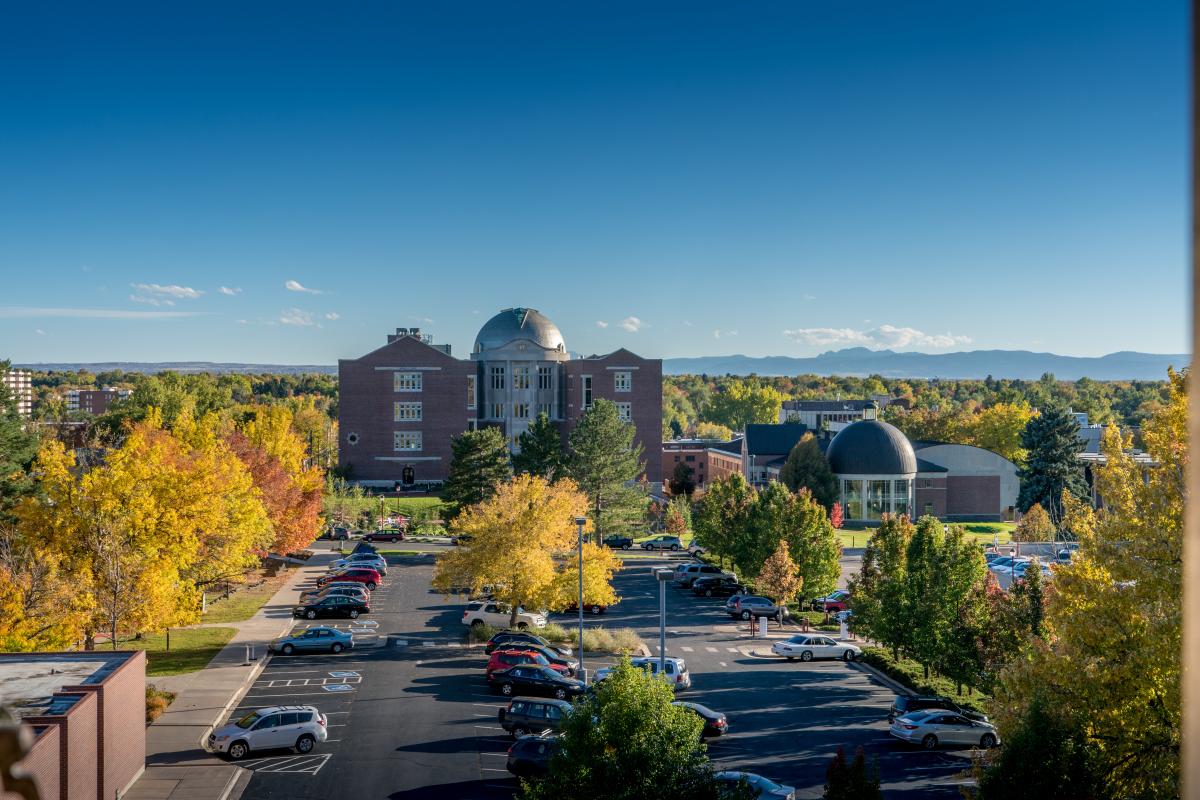NSF Grant Supports Collaboration on Sustainability and Well-Being

Work began this month on a multi-university research project aimed at developing, building and launching a public-facing platform to share health, well-being and sustainability data across Colorado.
Made possible by a $1 million grant from the National Science Foundation, the collaborative effort brings together researchers from the University of Denver, Metropolitan State University of Denver, the University of Northern Colorado, Colorado State University and CSU-Pueblo. The platform, dubbed “The Sustainability Hub,” will provide researchers, community activists, policymakers and residents throughout the Centennial State a unified location to house, share and access data and insights from past and ongoing research projects.
According to Kerstin Haring, co-PI on the project and assistant professor in the Ritchie School of Engineering and Computer Science, the Sustainability Hub addresses a growing need in Colorado. From ecological research and studies of land use to social work and health care data, many problems facing Colorado’s communities are interconnected, but the coinciding research is often not.
“We identified a lack of anything really bringing these [projects] together,” Haring says, “It is very hard to exchange information, and it's hard to find the information. It's hard to put your information somewhere where people are actually going to know what you're working on and the kind of impact it has.” The Sustainability Hub, she says, will simplify the often-complicated processes of sharing and publicizing research.
Housing state-wide data and research in one place is, however, not an all-encompassing solution, says Haring, whose role in the project involves how humans will interact with the platform. To maximize the reach and potential impact of previous and ongoing research, the data and insights must be made easily accessible. While designing and building the platform, Haring says, a major consideration is the end-user. “We're working with people that are not necessarily technical in the sense of database entry,” and, she says, “people who are just trying to find information on what is going on in Colorado.” Accessibility to all, regardless of technical skill level, will be made possible by the use of natural language queries—similar to how Google Search, Siri or Amazon’s Alexa can provide useful information in response to conversational questions.
The lack of a centralized hub also presents challenges for future researchers, limiting easy access to previous or unknowingly connected findings from other studies and projects. “It's hard to do the detective work to figure out these projects,” Haring says. “Or where they are done, who's doing them and how access to the information that comes out.” By maximizing the visibility of existing projects, researchers will be better equipped to make new discoveries and maximize the impact of their work across the state.
Building a unified platform for researchers, activists and policymakers from all of Colorado’s communities requires collaboration, Haring says. Those with a variety of computer science skillsets; researchers and experts in social work, ecology, sustainability, health and well-being; students; and community members with networking skills and on-the-ground knowledge of the issues communities face all play a significant role in creating and maintaining the Sustainability Hub. “We need that expertise,” Haring says. “And we got it through collaboration.”
Additional grant funding is being secured to expand the role of undergraduate researchers in building the Sustainability Hub—a development that Haring is excited for. “A lot of students, I’ve found, are interested in projects that combine technology with a strong positive social impact.” In addition to its utility for researchers, policymakers and residents, the Sustainability Hub’s broad scope will provide opportunities for student researchers across several fields.








